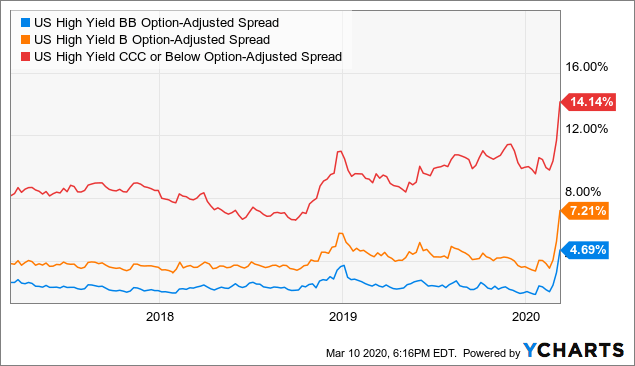
Although there are many advantages to business derivatives trading, they can also be associated with some risks. This article will cover the risks of business derivatives trading, as well as creative derivative strategies. This type financial instrument is often better than other securities such as stocks. We'll also cover the risks of legal uncertainty that may be associated with these types of transactions. Ultimately, the main objective of this article is to provide the investor with the knowledge they need to make an informed decision about whether or not to engage in business derivative trading.
Business derivatives have many benefits
Business derivatives help businesses manage risks. These instruments are used by businesses to protect their investments against fluctuations in commodities, currencies, interest rates, and other risks. Key inputs to production also fluctuate, so prices can change daily. These unpredictable tremors can be reduced by using derivatives. Hershey's for instance uses derivatives as a hedge against fluctuations of cocoa prices. Southwest Airlines uses derivatives to hedge against volatile jet fuel prices.

Business derivatives provide a critical benefit in managing risk and balancing financial risks. They are used by economic agents to help them balance the risks of their investments. Hedging, in this context, involves offsetting one type of risk with another. Multinational American companies that sell products in several countries can earn revenue in many currencies. The multinational American company's profits are affected by the depreciation of foreign currencies. The company can use business derivatives to hedge against this risk. It can enter into futures contracts that allow it to exchange foreign currency for dollars at a fixed rate.
Trade business derivatives are risky
Trading business derivatives carries a variety of risks. As derivatives are a growing concern, it is important that CEOs give enough authority and responsibility to their managers. Companies should carefully consider the reasons for using derivatives, linking them to broad business objectives. The company's derivatives policy should outline the products, authorizations and approvals they will use. The policy should also limit market and credit exposure.
The agency risk is a less-known danger. This happens when an agent pursues different objectives than the principal. A derivative trader might act on behalf of a bank, multinational corporation, or other entity. This could mean that the interests of the entire organization might be different from the interests and needs of each individual trader. Proctor and Gamble were a prime example of this kind of risk. Limiting the amount that companies lend to a single institution is advisable. The risks of using derivatives are significant enough to make companies cautious about their use.
Business derivative transactions: Legal uncertainty
Every organisation should have a risk management plan for legal uncertainty in business-related transactions. Legal risk can result from insufficient documentation, jurisdictional or cross-border factors and financial institution behavior. Strong risk management cultures are essential to minimize legal risks in derivative transactions. We will be focusing on three essential elements of legal risks management in this book: managing financial and reputational risk, developing a formal policy for risk management and implementing a framework.

Creative derivatives reduce risk
The benefits of using creative derivatives for business operations are well known. They are able to help lower risk by using financial instruments that hedge against fluctuations in the market prices. These include currencies, interest rates and commodities. These market tremors can be devastating for many businesses. They have the option to use derivatives to safeguard themselves against unexpected price increases or decreases. Hershey's, as an example, uses derivatives in order to protect its cocoa price. Southwest Airlines relies heavily on jet fuel to operate its planes. To hedge against fluctuations in jet fuel prices, derivatives are used.
FAQ
How Do People Lose Money in the Stock Market?
Stock market is not a place to make money buying high and selling low. It is a place where you can make money by selling high and buying low.
The stock exchange is a great place to invest if you are open to taking on risks. They would like to purchase stocks at low prices, and then sell them at higher prices.
They believe they will gain from the market's volatility. They might lose everything if they don’t pay attention.
Can bonds be traded?
Yes, they are. They can be traded on the same exchanges as shares. They have been traded on exchanges for many years.
The only difference is that you can not buy a bond directly at an issuer. A broker must buy them for you.
Because there are less intermediaries, buying bonds is easier. This also means that if you want to sell a bond, you must find someone willing to buy it from you.
There are several types of bonds. Some bonds pay interest at regular intervals and others do not.
Some pay interest annually, while others pay quarterly. These differences allow bonds to be easily compared.
Bonds can be very helpful when you are looking to invest your money. In other words, PS10,000 could be invested in a savings account to earn 0.75% annually. If you were to invest the same amount in a 10-year Government Bond, you would get 12.5% interest every year.
If all of these investments were put into a portfolio, the total return would be greater if the bond investment was used.
What is an REIT?
An REIT (real estate investment trust) is an entity that has income-producing properties, such as apartments, shopping centers, office building, hotels, and industrial parks. They are publicly traded companies which pay dividends to shareholders rather than corporate taxes.
They are similar in nature to corporations except that they do not own any goods but property.
What is the difference between stock market and securities market?
The whole set of companies that trade shares on an exchange is called the securities market. This includes stocks and bonds, options and futures contracts as well as other financial instruments. Stock markets are typically divided into primary and secondary categories. Stock markets are divided into two categories: primary and secondary. Secondary stock exchanges are smaller ones where investors can trade privately. These include OTC Bulletin Board, Pink Sheets and Nasdaq SmallCap market.
Stock markets are important for their ability to allow individuals to purchase and sell shares of businesses. Their value is determined by the price at which shares can be traded. When a company goes public, it issues new shares to the general public. Dividends are received by investors who purchase newly issued shares. Dividends are payments that a corporation makes to shareholders.
Stock markets are not only a place to buy and sell, but also serve as a tool of corporate governance. The boards of directors overseeing management are elected by shareholders. Boards make sure managers follow ethical business practices. If a board fails to perform this function, the government may step in and replace the board.
How are shares prices determined?
Investors decide the share price. They are looking to return their investment. They want to earn money for the company. So they buy shares at a certain price. Investors make more profit if the share price rises. If the share price goes down, the investor will lose money.
An investor's primary goal is to make money. This is why they invest in companies. It helps them to earn lots of money.
How do I invest in the stock market?
Brokers are able to help you buy and sell securities. A broker buys or sells securities for you. You pay brokerage commissions when you trade securities.
Banks typically charge higher fees for brokers. Banks offer better rates than brokers because they don’t make any money from selling securities.
You must open an account at a bank or broker if you wish to invest in stocks.
If you use a broker, he will tell you how much it costs to buy or sell securities. This fee will be calculated based on the transaction size.
Your broker should be able to answer these questions:
-
Minimum amount required to open a trading account
-
How much additional charges will apply if you close your account before the expiration date
-
What happens when you lose more $5,000 in a day?
-
How long can you hold positions while not paying taxes?
-
whether you can borrow against your portfolio
-
Transfer funds between accounts
-
How long it takes transactions to settle
-
The best way buy or sell securities
-
How to avoid fraud
-
How to get help if needed
-
Can you stop trading at any point?
-
How to report trades to government
-
How often you will need to file reports at the SEC
-
How important it is to keep track of transactions
-
What requirements are there to register with SEC
-
What is registration?
-
How does this affect me?
-
Who is required to register?
-
When should I register?
Statistics
- Our focus on Main Street investors reflects the fact that American households own $38 trillion worth of equities, more than 59 percent of the U.S. equity market either directly or indirectly through mutual funds, retirement accounts, and other investments. (sec.gov)
- Ratchet down that 10% if you don't yet have a healthy emergency fund and 10% to 15% of your income funneled into a retirement savings account. (nerdwallet.com)
- Even if you find talent for trading stocks, allocating more than 10% of your portfolio to an individual stock can expose your savings to too much volatility. (nerdwallet.com)
- US resident who opens a new IBKR Pro individual or joint account receives a 0.25% rate reduction on margin loans. (nerdwallet.com)
External Links
How To
How to create a trading plan
A trading plan helps you manage your money effectively. It allows you to understand how much money you have available and what your goals are.
Before creating a trading plan, it is important to consider your goals. You may want to make more money, earn more interest, or save money. You may decide to invest in stocks or bonds if you're trying to save money. You could save some interest or purchase a home if you are earning it. And if you want to spend less, perhaps you'd like to go on holiday or buy yourself something nice.
Once you know your financial goals, you will need to figure out how much you can afford to start. This depends on where you live and whether you have any debts or loans. You also need to consider how much you earn every month (or week). The amount you take home after tax is called your income.
Next, you need to make sure that you have enough money to cover your expenses. These expenses include bills, rent and food as well as travel costs. These all add up to your monthly expense.
You'll also need to determine how much you still have at the end the month. This is your net available income.
Now you know how to best use your money.
Download one from the internet and you can get started with a simple trading plan. Ask an investor to teach you how to create one.
Here's an example of a simple Excel spreadsheet that you can open in Microsoft Excel.
This is a summary of all your income so far. This includes your current bank balance, as well an investment portfolio.
Here's another example. This one was designed by a financial planner.
It will allow you to calculate the risk that you are able to afford.
Don't attempt to predict the past. Instead, put your focus on the present and how you can use it wisely.